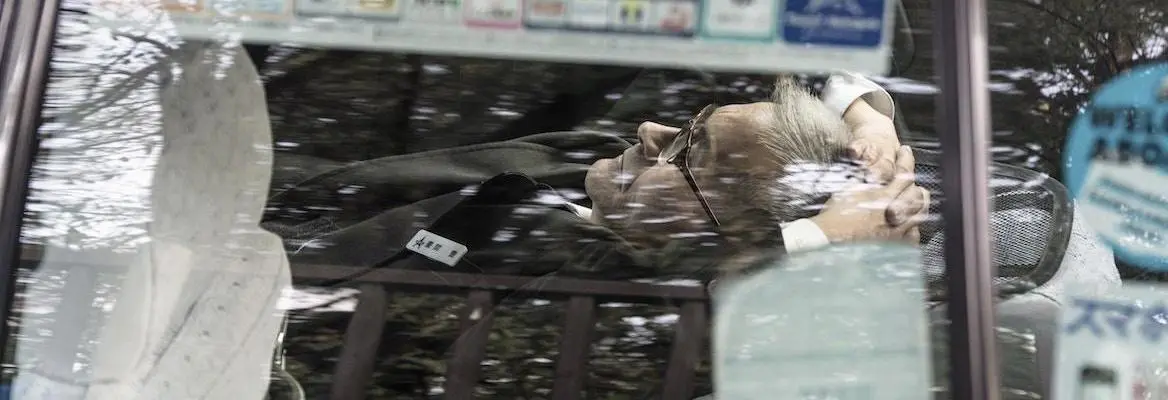When you’re bored—really bored—it feels like forever. A lived eternity. And so for some people, boredom turns into negative revelation: of the meaninglessness of it all, the senselessness of life itself. But this nihilistic dynamic should not be taken at face value; rather, it requires an investigation of how we got to this feeling.
We often differentiate such extreme boredom from the everyday sort by translating it into French. But the distinction between ‘ennui’ and ‘boredom’ is hardly compelling. In French, ennuis are by no means always existential, and the contrast is tricky since it’s so often been used to tell apart whose boredom really matters. (Children and housewives are bored; ennui is for philosophers and poets.) Moreover, for those who are prone to boredom, it’s often hard to draw the line between such “deep” boredom and the garden variety malaise. Under the right conditions, the everyday discontent can quickly magnify into a full-blown existential crisis.
It may seem natural to assume boredom is a universal feature of the human condition. On this view, what we call boredom has always been around, at least in the west—that what the Romans called taedium vitae, the desert monks acedia, Dürer melancholy, Baudelaire ennui are all the same thing, traveling under different names.
___
"Boredom is an abstract crisis of desire—one at home in a secularised world where attention has become a commodity"
___
But it’s quite misleading to think about boredom in ahistorical terms. The category itself is a relatively recent entrant into a long and complex history of cultural, intellectual, theological, and philosophical reflection. Disregarding the longer genealogy, and conflating boredom with very different modes of human experience, obscures its connections to capitalism and to the industrial-technological remaking of everyday life in the modern world.
Although its origin remains uncertain, according to the OED, ‘boredom’ in the sense of a “state of being bored; tedium, ennui” first appeared in Dickens (Bleak House, 1852). Boredom’s French and German cousins are much older. Ennui, probably derived from the Latin odium [hatred], has been around at least since the troubadours, while the German ‘Langeweile,’ literally, ‘long while,’ made its first documented appearance in 1537. By the late eighteenth century, the meaning of Langeweile had expanded beyond the temporal, assimilating the connotations of unfulfilled desire and existential lack associated with the French ennui. Since “boredom” synthesises the paradigmatically German sense of painfully extended time and the unfulfilled desire, frustrated longing, and lost meaning connoted by the French ennui, I use the English term to refer to the Europe-wide phenomenon.
In the course of the nineteenth century, as European society modernised, the metaphorics of boredom spread rapidly beyond their literary origins to become a key element in a new, disenchanted language of experience, which marginalised and displaced older, religious and philosophical vocabularies. New ways of understanding and experiencing human being in time were taking hold; everyday life was increasingly dominated by standardised clock time, and cyclical and eschatological frameworks were being eclipsed by a vision of history as rational progress. As urbanisation and industrialisation exploded, experiences of dislocation, loss of meaning, and futility spread among the middle and working classes. By the 1840s, according to Walter Benjamin, “ennui began to be felt on an epidemic scale.”
Far from being an eternal feature of the human condition, then, boredom is a crisis of meaning and desire within a specific lived context. Construing boredom as an ahistorical feature of the human condition obscures the way the most intimate aspects of human experience have changed over time.



















Join the conversation